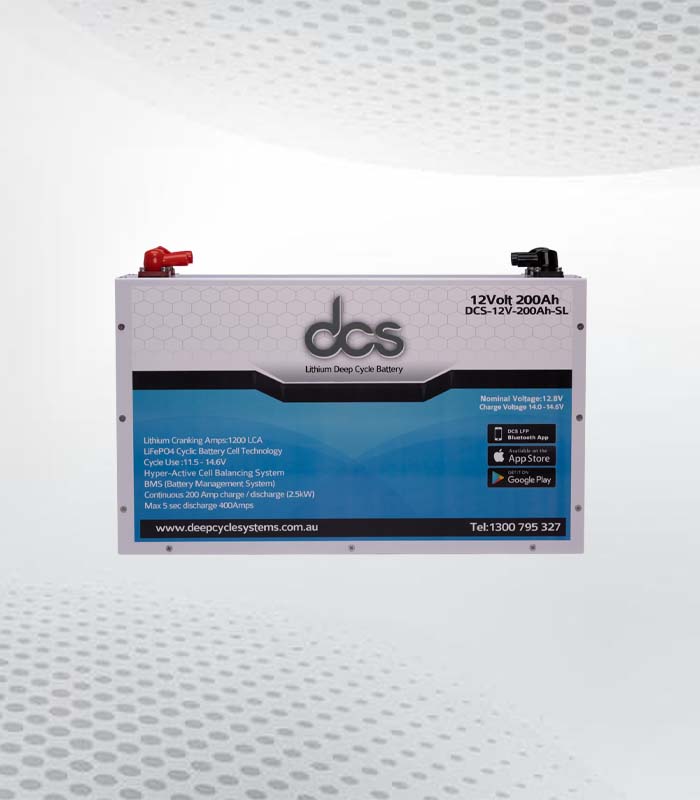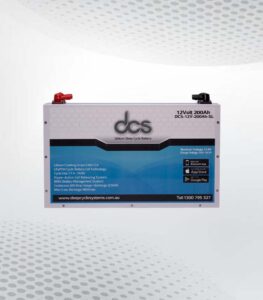Are you looking for a reliable energy solution? If so, you should consider lithium-ion batteries. Lithium iron phosphate batteries are rechargeable lithium-ion batteries known for being safer and more reliable than other lithium-ion batteries. Lithium iron battery provides better performance and longer cycle life than traditional lead-acid batteries, making them the ideal choice for various applications. In this blog post, we will discuss the advantages of lithium-ion batteries and why they should be your top choice for an energy solution.
The Basics Of Lithium Iron Batteries
Lithium iron batteries, also known as lithium iron phosphate batteries or LiFePO4 batteries, are rechargeable lithium-ion batteries that have gained popularity in recent years. These batteries are known for their high energy density and long cycle life, making them a reliable energy solution for many applications.
One of the critical features of lithium iron batteries is their safety. Unlike other lithium-ion batteries, lithium-ion batteries are much more stable and less prone to overheating or catching fire. This is due to iron phosphate as the cathode material, which is more durable than the cobalt oxide used in other lithium-ion batteries.
Advantages Of Using Lithium Iron Phosphate Battery
Lithium-ion batteries offer numerous advantages, making them a top choice for an energy solution. One of the key advantages is their safety. Unlike other lithium-ion batteries, they are known for their stability and reduced risk of overheating or catching fire. This is due to the use of iron phosphate as the cathode material, which provides better stability than cobalt oxide used in other lithium-ion batteries. So, if safety is a concern for your application, lithium-ion batteries are the way to go.
Another advantage of lithium-ion batteries is their long cycle life. Lithium iron phosphate battery can withstand many charge and discharge cycles without significant degradation in performance. This means that they can be used for a longer period compared to other battery types, making them a more cost-effective option in the long run.
Comparing Lithium Iron Batteries With Other Battery Types
Regarding energy solutions, it’s important to compare different battery types to find the best option. Lithium iron batteries stand out among other battery types for several reasons.
- First, let’s compare them to lead-acid batteries, a common alternative. Lead-acid batteries are heavy and bulky, making them less suitable for applications where space is limited. In contrast, lithium iron batteries offer a higher energy density, allowing them to store more energy in a compact size.
- Regarding safety, lithium-ion batteries have a clear advantage over other lithium-ion batteries. Their use of iron phosphate as the cathode material provides better stability and reduces the risk of overheating or catching fire.
- Another important factor to consider is the cycle of life. Lithium iron batteries can withstand a high number of charge and discharge cycles without significant degradation in performance.
Lithium iron batteries outshine other battery types in terms of energy density, safety, and cycle life. When comparing options for your energy solution, consider the advantages of lithium iron batteries for your specific application.
Common Applications Of Lithium Phosphate Battery
Lithium iron batteries have gained popularity in various industries due to their reliable performance and numerous advantages. Let’s explore some common applications where these batteries are being used.
- Electric Vehicles (EVs): Lithium-ion batteries are widely used in electric cars, bikes, and scooters. Their high energy density allows them to power the vehicle efficiently, providing a longer range and faster charging capabilities. Moreover, their safety features make them an ideal choice for EVs.
- Renewable Energy Systems: With the growing demand for clean energy, lithium-ion batteries are used in solar power systems and wind turbines. Lithium phosphate battery can store excess energy generated during peak production periods and provide it during periods of low production. This helps ensure a stable and uninterrupted power supply.
- Portable Electronics: Lithium-ion batteries are commonly used in smartphones, laptops, tablets, and other portable electronic devices. Their high energy density and compact size make them perfect for these applications, allowing for longer battery life and quicker charging times.
- Marine Applications: Lithium iron batteries are also used in boats, yachts, and marine vessels. Their lightweight and high energy density makes them suitable for providing power to onboard systems, including navigation equipment, lighting, and entertainment systems.
- Off-Grid Power Systems: In remote areas or locations where grid power is unreliable, lithium iron batteries are used in off-grid power systems. These batteries store energy generated from renewable sources or diesel generators, ensuring a continuous power supply without dependence on the grid.
Maintenance And Care For Lithium-Ion Batteries
Lithium-ion batteries are known for their reliability and long cycle life. To ensure that your lithium-ion batteries continue to perform at their best, it is important to properly maintain and care for them. Here are some tips to help you maximize the lifespan and performance of your lithium-ion batteries.
- Avoid extreme temperatures: Lithium-ion batteries should be stored and operated within a temperature range of -20°C to 60°C (-4°F to 140°F). Exposure to extreme temperatures can affect the battery’s performance and overall lifespan. If possible, keep your batteries in a temperature-controlled environment.
- Charge correctly: When charging your lithium-iron batteries, use a charger specifically designed for lithium-ion batteries. Avoid overcharging or discharging the batteries, which can lead to performance degradation and reduce the battery’s lifespan. Follow the manufacturer’s guidelines for charging and discharging your batteries.
- Regular maintenance: Periodically inspect your lithium iron batteries for any signs of damage or wear. If you notice any swelling, leaks, or other abnormalities, it is important to replace the battery immediately. Regularly clean the battery terminals to prevent corrosion and ensure good connectivity.
- Handle with care: When handling lithium iron batteries, avoid dropping or exposing them to impact. Rough handling can damage the internal components and affect the battery’s performance. Handle the batteries with care to ensure their longevity.
By following these maintenance and care tips, you can ensure that your lithium-ion batteries continue to provide a reliable energy solution for your applications. Proper maintenance will help maximize their performance and extend their lifespan, saving you time and money in the long run.
Future Trends And Developments In Lithium-Ion Batteries
As technology continues to advance, so does the development of lithium-ion batteries. These batteries have already proven to be reliable and efficient energy solutions, but exciting future trends and developments are worth exploring.
One area of focus is increasing the energy density of lithium-ion batteries. Researchers are improving the electrode materials and overall design to store even more energy in a compact size. This could lead to longer battery life and increased power output, making lithium iron batteries even more versatile in various applications.
 Maximizing Performance Of Lithium Iron Batteries
Maximizing Performance Of Lithium Iron Batteries
To ensure you get the most out of your lithium-ion batteries, there are a few steps you can take to maximize their performance. First and foremost, it’s essential to follow the manufacturer’s guidelines for charging and discharging your batteries. Overcharging or discharging can lead to degradation and reduce the overall lifespan of the batteries. By using a charger specifically designed for lithium-iron batteries and avoiding extreme charging or discharging, you can maintain the performance and longevity of your batteries.
Additionally, regular maintenance is key to maximizing performance. Inspect your batteries periodically for any signs of damage or wear. If you notice any swelling, leaks, or other abnormalities, it’s crucial to replace the battery immediately. Cleaning the battery terminals regularly can also help prevent corrosion and ensure good connectivity, improving overall performance.
How Lithium Iron Batteries Are Making A Mark In Energy Storage
Lithium-ion batteries are making a significant impact in the world of energy storage, revolutionizing how we power our lives. These batteries have gained widespread recognition for their reliability, safety, and long cycle life, making them a preferred choice in various industries.
One area where lithium iron batteries are making a mark is in electric vehicles (EVs). As the demand for electric transportation grows, these batteries have become the go-to energy solution for EV manufacturers. Lithium-ion batteries offer a higher energy density, allowing longer ranges and faster charging capabilities. Their safety features make them an ideal choice for EVs, ensuring a secure and dependable power source.
FAQs
Q: Can Lithium Iron Batteries Be Used In Extreme Temperatures?
A: Lithium-ion batteries have a wider temperature range than other batteries, but extreme temperatures can still affect their performance. It is best to store and operate these batteries within a temperature range of -20°C to 60°C (-4°F to 140°F) to ensure optimal performance.
Q: Are Lithium-Ion Batteries Safe To Use?
A: Lithium-iron batteries are known for their safety. Iron phosphate, as the cathode material, provides better stability and reduces the risk of overheating or catching fire. Unlike other lithium-ion batteries, lithium-ion batteries are much safer and less prone to safety issues.
Q: How Long Does It Take To Charge A Lithium-Ion Battery?
A: The charging time for lithium iron batteries varies depending on the battery capacity and the charger used. However, with the advancement of technology, fast-charging options can charge a lithium-ion battery in hours.
Q: Can I Use A Lithium Iron Battery In My Electric Vehicle?
A: Absolutely! Lithium-ion batteries are widely used in electric vehicles. They offer a higher energy density, providing a longer range and faster charging capabilities. Their safety features also make them an ideal choice for EVs.
Q: Are Lithium Iron Batteries Environmentally Friendly?
A: Yes, lithium iron batteries are more environmentally friendly compared to other battery types. They do not contain toxic materials such as lead or cadmium, and efforts are being made to use sustainable and recyclable materials in their production.
Q: Can I Use Lithium Iron Batteries In My Off-Grid Power System?
A: Definitely! Lithium-ion batteries are commonly used in off-grid power systems. They can store energy generated from renewable sources or generators, ensuring a continuous power supply without dependence on the grid.
Conclusion
In conclusion, lithium iron batteries are an excellent choice for anyone looking for a reliable and efficient energy solution. Their safety, long cycle life, and high energy density offer numerous advantages over other battery types. Iron phosphate, as the cathode material in lithium-ion batteries, makes them much safer and more stable than other lithium-ion batteries. This is a crucial feature, especially for applications where safety is a concern, such as in electric vehicles or portable power banks.
THis Article Was First Published On:
Why Switching to a 75ah Lithium Battery is the Future?



